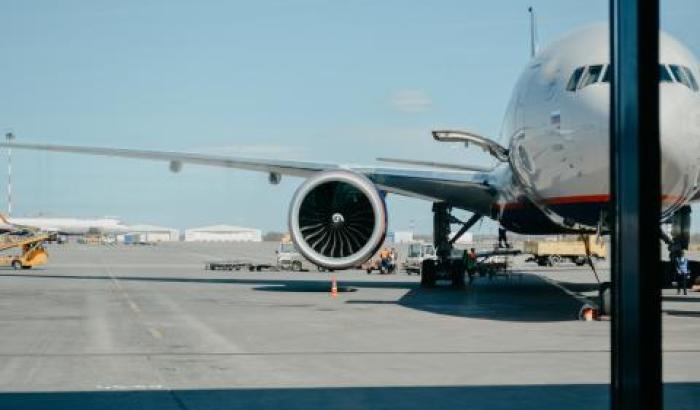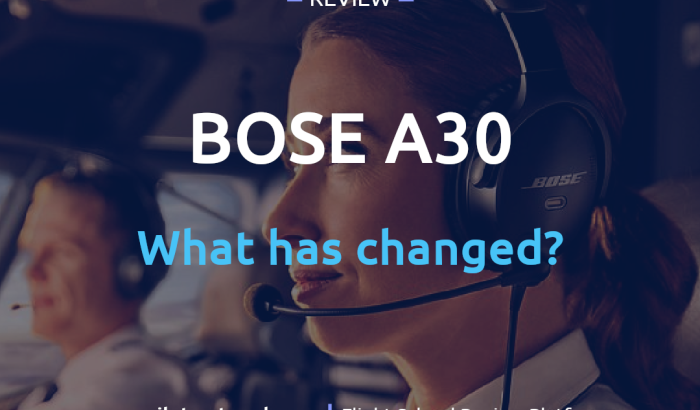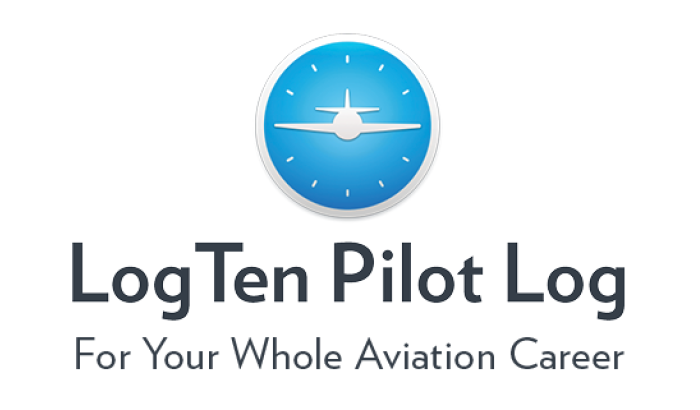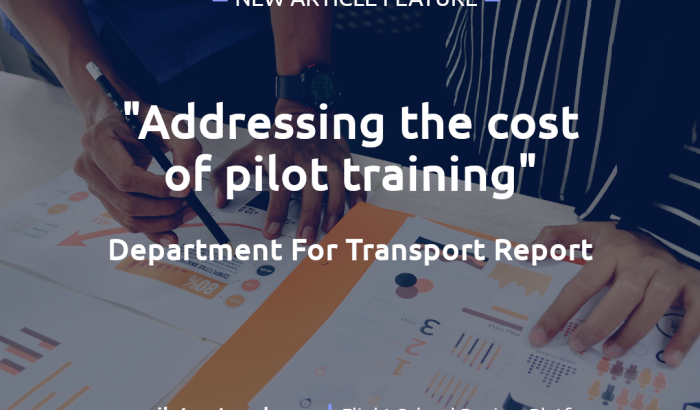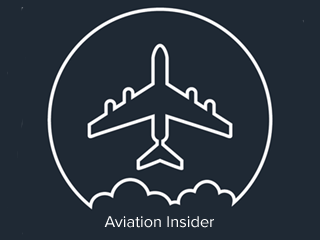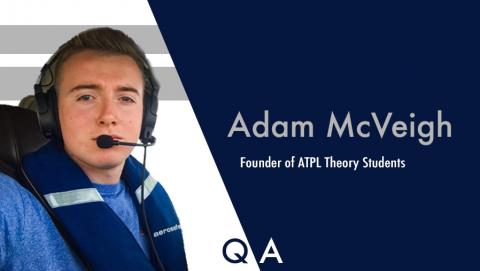
Aviation Q&A with Pilot Network: Adam McVeigh
Welcome to the first ever edition of ‘Aviation Q&A with Pilot Network’. We are excited to have with us - Adam McVeigh, the creator of the ‘ATPL Theory Students’ group on Facebook. ATPL Theory Students is a forum-type page created to help pilots in flight training during the challenging ATPL Theory studies. It has proven invaluable to thousands of students around Europe and the world in completing the ATPL exams, and we are excited to have the opportunity to speak with Adam today.
Hello Adam and welcome to Aviation Q&A with Pilot Network. It's great to have you featured and we look forward to getting to know a little bit about yourself and your group.
- The ‘ATPL Theory Students’ group has proven a highly useful tool for students. What prompted you to start it?
I started the group back in January 2018 during a period of time where I was struggling to combine studying, with work and other life events. I pushed my first set of exams back 4 times because I was worried about “what if...”. What if I failed my very first exam? What if, after all my studying, it still wasn’t enough? What if I was spending far too much time on irrelevant topics and how was I to know if I was or not?
Studying a distance learning course was a very lonely experience at first and you had to figure everything out on your own which took valuable time away from learning the stuff you really should be studying. So I started the group to try and gather a few other people in similar circumstances so we could bounce thoughts and ideas off one another and tackle these exams as a team.
- Did you ever envisage that it would have so many followers and interactions?
Never! I hoped that I would gather a few of us together, sort of like a study group. But two years later, approaching nearly 12,000 members at the time of writing I am so glad that so many have found the group and I hope that it has been useful at some point to every single one.
- How did you get into aviation?
Ever since I could talk, all I wanted to do was to “drive” planes. When I was really young I had a few books about aircraft and life at the airport that I loved and looked at every day. Whenever I went on holiday, my favourite part of the entire trip was going to the airport, especially sitting at the window, looking at the entire airside operation, bag loading, pushback, landings, take-offs etc. It all just mesmerised me. I vividly remember the journeys to Aldergrove airport seeing the seemingly massive tails of the aircraft looming above the fence as we drove past. So in short, there was no specific event but I’ve had the dream to be a pilot since I could talk and 22 years later the dreams come true, nearly! (Thanks COVID-19...)
- What stage of training are you currently at? And what's next for you?
I finished my ATPL Theory in August 2019, started my CPL and ME/IR in November of that same year and was lucky enough to pass my last flight test on Friday 13th of March 2020, a few weeks before the first UK lockdown (I’m not really superstitious but the rest is history). I began my APS/MCC in April, but it got postponed until September when I managed to complete it, signalling the end of my flight training. I’m now looking to get a flying job so I hope the situation starts to improve!
- What are your 3 pieces of advice for ATPLs?
a) DO. NOT. JUST. BANK. By the end of your ATPL studies you should be able to go into any question bank and answer the question using the knowledge you have learnt, not just because you know the correct answer of the 4 options given. The whole purpose is so that when something goes wrong at 37,000ft, you can build a picture in your mind why something has happened and this knowledge that has been filed away in the back of your mind can assist your decision making.
b) I firmly believe the ATPL’s are used to wean out those who don’t actually want to be pilots. I haven’t met a single person who thinks they are simple or easy. I for one, questioned at the start of my studies whether or not I could complete all 14. But the passion I have for flying and the dream of flying commercially kept me motivated to keep my head down and get through them. I often get people asking me whether they are “smart enough” to become a pilot and to anyone that reads that and asks the same question, my answer is simple - It doesn’t matter how smart you are. The sheer volume of studying is there to test who has the want and drive to become a pilot, that is the difficult part. The subject content difficulty is subjective but the dedication needed to study is the same for everyone. <
c) Use this process to “Learn how to learn”. If you study modular you will quickly learn that people come from all walks of life. Some have multiple degrees, others have never sat professional exams in their lives. As I said above, the hardest part of this is studying. The content, for the most part isn’t actually that difficult. If you had to take one little piece and teach it to a random person, for 99% of the content that you will study, you could manage it. The hardest part is taking all those little pieces and learning them all, in effective ways that you will remember for the exam and beyond. It’s true that a lot of it you will never use again, but hey, it still has to be learnt if you want to pass and move onto the next stage. So throughout your studying, find little tricks and tips that make it easier to remember things - something that you can use the Facebook group for by asking others about theirs.
- How do you think Covid will impact flight training in the coming year?
I think we have 3 possibilities;
a) The industry does not bounce back to the level it was pre-COVID, however I don’t think this is likely.
b) The industry bounces back to the same level that it was pre-COVID meaning the pilot shortage that was occurring will return, great news for us.
c) The industry will bounce back and have even more demand than pre-COVID. I personally think, albeit optimistically, this is what we will be faced with, maybe not in a year but whenever the world actually starts to recover. My reasoning behind it is that this event is not like 9/11. Aviation and travel has not been put in a bad light, if anything, people are anticipating being allowed to travel freely again and airlines will want to snatch at that opportunity while it lasts. Thus leading to increased air travel and the need for more pilots. Think of the demand pre-COVID and add the fact that people have been locked up for a year and want to get out, I personally think the future is bright.
- What’s your favourite and least favourite ATPL subject and why?
My favourite ATPL subject was meteorology. I found it so rewarding when at the very end of the subject, every piece of the seemingly confusing puzzle clicked to form a grand overall model. I nicknamed this the “big picture” and you can read it as a pinned post on ATPL Theory Students. I can’t take credit however as it was my fantastic Meteorology instructor that told us about it. (Side note, a great instructor makes all the difference to the enjoyment and understanding of a subject.)
My least favourite subject was flight planning. I found some of the concepts confusing at first and it was only after studying some other subjects, like mass and balance, that the concepts clicked. I have to say, I also didn’t like operational procedures or air law. Give me a calculator and a pencil over lines and lines of text any day!
- What’s your favourite GA and Civil aircraft and why?
My favourite GA aircraft that I have flown has to be the Diamond DA42 Twinstar. It is such a smooth flying aircraft and the undercarriage can make any landing feel ‘buttery’. It was the first aircraft that I flew into Class A airspace and hearing “Etihad” or “Emirates” on the radio was the point I realised that my childhood dream of becoming a commercial pilot was slowly becoming a reality.
My favourite commercial aircraft has always been the Boeing 777. The sound and size of those GE90’s (and of course now the GE9X) is iconic and I still dream of the day of being able to push the thrust levers forward and hear them spool up behind me!
- What did you most and least like about flight training?
When I was thinking about this question I was going through all of the great experiences I’ve had so far flying, but the one thing I realised was that every one of those experiences contained great people. I’ve met some fantastic individuals along the way and the aviation community is like no other. That is the best thing about flight training.
The worst thing by far is the financial cost. I don’t regret a single penny I’ve spent, however coming in to pay after a twin IR flight and being handed a bill with a comma in it is never nice.
- If there is one thing you could change about aviation what would it be?
I think mental health is an area that should be addressed. A lot of people have sacrificed a lot to become a pilot, whether it’s family, money, time as well as many other things. Friends and family not in aviation can sometimes struggle to understand why we make these sacrifices so having a support network of other individuals who are going through or have been through what you are going through can make such a difference to your mental health, even if it is as simple as talking through a theory question. People should know that while going through this process, they are not alone and a lot of people struggle. Because of the fortunate position I am in as admin on the Facebook group, I often get to hear what people are going through and I am glad so many have found help in the group. I just wish that that help and support could broaden out into all areas of aviation.
Thank you Adam for taking the time to speak with us today, it's been a pleasure to have you featured and read about yourself and your journey. Keep up the hard work and we wish you all the best for the rest of your career and future endeavours.
Adam’s group can be found by typing ‘ATPL Theory Students’ into the search bar on Facebook and is an absolute must for anyone studying for their theory exams.
Thank you for reading,
The Pilot | Network Team

